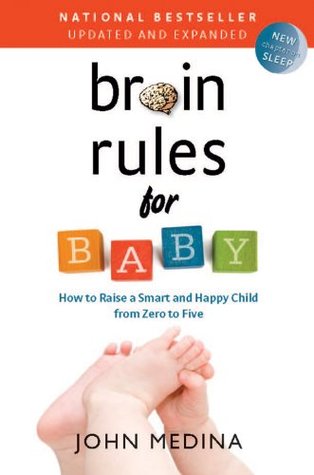More on this book
Community
Kindle Notes & Highlights
by
John Medina
Read between
October 18, 2017 - January 12, 2018
You have to be comfortable with your emotions in order to make your kids comfortable with theirs.
Moms and dads become so acquainted with their children’s psychological interiors, they become pros at forecasting probable reactions to almost any situation. This results in an instinctive feel about what is most likely to be helpful, hurtful, or neutral to their child, and in a wide variety of circumstances.
This big-hearted father is good at (a) labeling his feelings and (b) teaching his daughter to label hers.
tons of empathy
Families who raise moral kids follow very predictable patterns when it comes to rules and discipline.
1. Clear, consistent rules and rewards
Every time your child follows the rules, you offer praise
praise the absence of bad behavior
2. Swift punishment
punishment that’s actually effective.
It must be punishment.
It must be consistent. The punishment must be administered consistently—every time the rule is broken.
more exceptions you allow, the harder it will be to extinguish the behavior.
must be swift.
Rules that are explained
Without rationale “Don’t touch the dog, or you’ll get a time-out.” With rationale “Don’t touch the dog, or you’ll get a time-out. The dog has a bad temper, and I don’t want you to get bitten.”
Kids who are punished without explanation do not go through these steps. Parke found that such children only externalize their perceptions, saying, “I will get spanked if I do this again.” They are constantly on the lookout for an authority figure; it is the presence of an external credible threat that guides their behavior, not a reasoned response to an internal moral compass.
spanking causes more behavioral problems than other types of punishment, producing more aggressive, more depressed, more anxious children with lower IQs.
infants are only beginning to learn how to sleep. They won’t exhibit a predictable sleep cycle for several months—or adult-like sleep behaviors for years.
Newborns’ task is Herculean. They need to eat about every two to three hours, some much more often.
baby is still in active sleep mode, and easily aroused. Once you detect signs of sleep, don’t disrupt the process. If you are holding baby, continue to hold baby. Pay attention to how long it takes her to reach quiet sleep. Give it an extra 10 minutes as an insurance policy, and then place baby in the crib.
With most newborns, you don’t see strong evidence of something approaching a socially acceptable circadian rhythm (as measured by melatonin production) for almost three months, and nothing approaching sanity—defined as getting five straight hours of sleep—for almost six months. Some kids take longer to learn to sleep through the night.
up. It is not unusual for an infant to wake up three times a night for the first six months of his life. He may still wake up once or twice a night before his first birthday, and may wake up once a night until his second.
one thing helps babies make this transition: having a consistent bedtime routine. This starts with choosing a time for bedtime, sometime around 6 months old.
Next, create a series of predictable bedtime rituals. These rituals can be almost anything, from singing favorite lullabies to turning all the lights in the house down low. Part of the ritual may involve giving your infant a warm bath, followed by a nursing session to “top off” the child before slumber. If the child is a tough sleeper, your routine may involve a slow ride over a bumpy road. The Medina family found this to be the most successful method when sleep was a problem. Whatever the activities, they should be consistently applied: same content, same order, same environment. Babies
...more
Voltaire once said, “Every man is guilty of all the good he did not do.”


